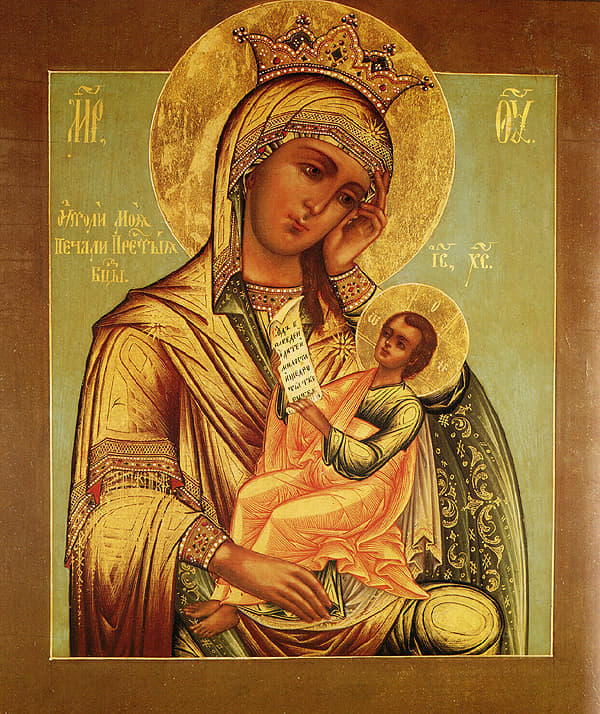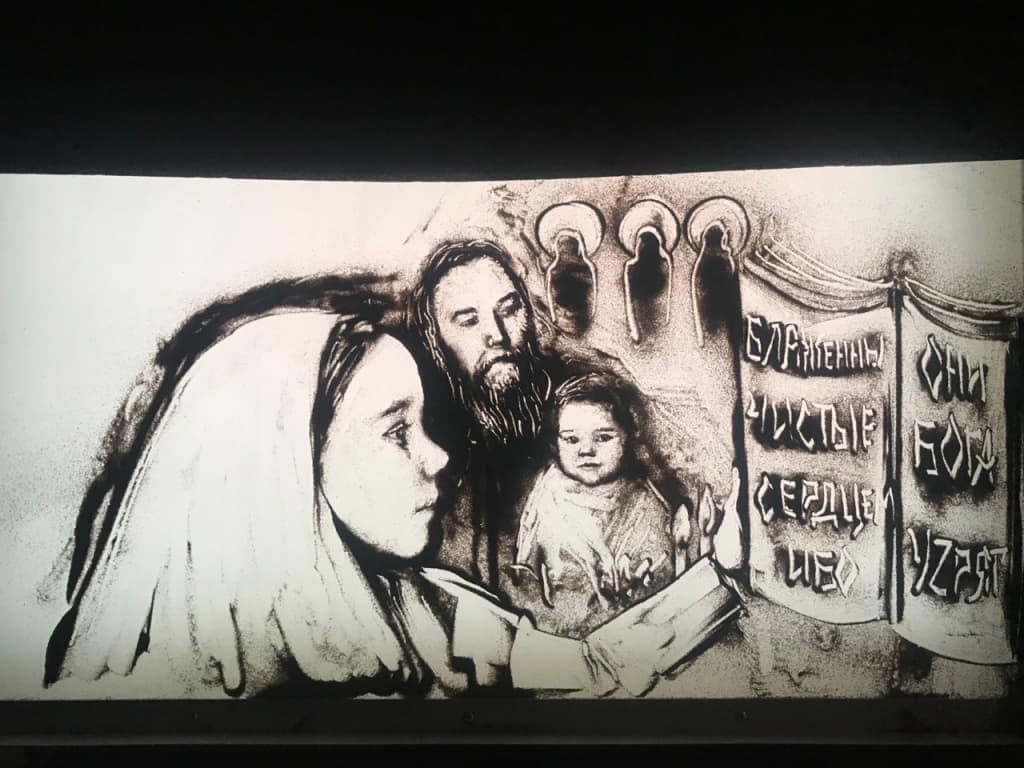Dear friends! Dear participants of the Tradition Festival! Dear founders of the Daria Dugina Prize!
Unfortunately, due to circumstances, I was unable to attend the Tradition Festival this time, although I tried not to miss it before. Tradition is the main word in my life. It became the main and the last word in the life of my daughter, Dasha Dugina.
Only that for which people are ready to sacrifice their lives becomes valuable. Tradition is the highest value. It is what makes the Motherland the Motherland, the people the people, the Church the Church, and culture the culture.
I would like to say a few words about the Creative Award. This is a wonderful initiative. There is hardly a better way to honor her memory. After all, Dasha was the embodiment of creativity. She was a leap into the future. She lived in faith and hope. She was always looking forward and upward. Perhaps, she took it too steeply, as far as “up” is concerned… But her message lives on among us and is only becoming more and more distinct, focused and clear. Her message is an invitation to the Russian future. A future that has yet to come true.
Dasha always thought of herself as a project, as a burst of creative will. She was enflamed by philosophy, religion, politics, culture, and art. She lived so richly, so fully, precisely because she cared about everything. Hence such a range of her interests, her texts, her speeches, her creativity, her endeavors. She wanted very much during her lifetime that Russians would move, that our country and our culture would move from a standstill and take off.
She considered it her mission to live for Russia, and if she had to, to die for Russia. This is what she wrote in her Diaries, Topi i vysi moyego serdtsa (Drown and Rise, my Heart), which we have recently published. Dasha’s second philosophical book, Eskhatologicheskiy Optimizm (Eschatological Optimism) will be published soon—in several languages at once, because Dasha is remembered and loved in the world.
Living for Russia is her message, which should be passed on and on. Dasha’s award is more than a formal encouragement; it is a living vibrating impulse.
We have many wonderful true heroes, warriors, defenders, people of deep soul and pure heart. Some of them gave their lives for the Motherland. Some live with us now. The memory of every hero is sacred. And the memory of Dasha.
The fact is that Dasha is not just a model patriot and citizen, she is also the bearer of an incredible, though not yet fully revealed, only intended (but how intended!) spiritual potential. She sought to embody the grace of imperial Russia, the style of the Silver Age, and the deep interest in Neoplatonist philosophy with which she burned. Sincere and heartfelt Russian Orthodoxy and geopolitics. Modern avant-garde art—in music, theater, painting, film—and a tragic comprehension of the ontology of war. Sober and aristocratically restrained understanding of the fatal crisis of modernity and the fiery will to overcome it. This is eschatological optimism. To look into the eyes of misfortune and horror of modernity and to keep a luminous faith in God, His Mercy, His justice.
I wish that the memory of Dasha would not so much focus attention on the images of her lively, charming, filled-with-pure-energy girl’s life, but becomes a continuation of her ardor, the fulfillment of her plans, her far-reaching, pure imperial dreams.
Today it is clear to many that Dasha has objectively become our national hero. Poems and paintings, cantatas and songs, plays and theater productions are dedicated to her. Streets in towns and cities of Russia are named after her. A monument is being prepared for installation in Moscow, and possibly in other cities.
A young girl who had never taken part in hostilities, who had never called for violence or aggression, who was deep and smiling, naive and well-educated, was brutally murdered in front of her father’s eyes by a heartless, ruthless enemy—a Ukrainian terrorist who did it here, at the festival “Tradition,” not hesitating to involve her young daughter in the murder. She was sent to do this by the authorities in Kiev and the secret services of the Anglo-Saxon world—the staunch enemies of Tradition. A year ago, I gave a lecture here on “the Role of the Devil in History.” Dasha listened. So did the murderer. The Devil was listening to what I was saying about the Devil, preparing to do his diabolical work.
And sure enough, Dasha became immortal. Our people could not remain indifferent to this. And my tragedy, the tragedy of our family, Dasha’s friends, all those who communicated and cooperated with her, became the tragedy of all our people. And tears began to choke people—both those who knew this girl and those who heard about her for the first time.
And these are not simple tears. These are tears of our resurrection, of our purification, of our coming victory.
Dasha is becoming a symbol. She already is. But now it is important that the content of this symbol does not disappear, does not dissolve, does not fade away. It is important not only to preserve the memory of Dasha, but to continue her work. Because she had this Cause. Her Cause.
That is why this prize is so important, why it is important to work on the Daria Dugina Foundation, as suggested by my close and good friends Konstantin Malofeev, Eduard Boyakov and many others. Young philosophers, theologians, priests, musicians, politicians, scientists, poets, artists, journalists, military officers—all those who today are building the spiritual basis of the Russian World, reviving the depths and heights of our Empire. Dasha supports them, inspires them, helps them, protects them above all.
There are saints who help in certain circumstances—those in poverty, those in illness, those in wanderings, those in captivity. Even individual icons are distributed in God’s mercy in such a way that they care for people in different difficult, sometimes desperate situations. “Assuage my Sorrows” is the name of one of the images of the Mother of God. And there is one canon that is recited when it becomes impossible to live at all and everything collapses…..

And so are the protagonists. They are different, too. Some embody military valor. Others, sacrificial tenderness. Others, strength of mind. Others still, the pinnacle of political will. They are all beautiful.
Dasha embodies the Soul. The Russian Soul.
Both the prize named after her and the Foundation we are going to establish should be dedicated to the Russian Soul. This is the most important thing. If there is no Soul, there will be no Russia; there will be nothing.
Many good people have volunteered to carry the memory of Dasha. There is the People’s Institute of Daria Dugina. There are Daria Dugina’s Lessons of Courage. There is a new series in the wonderful publishing house, Vladimir Dal: “Dasha’s Books.” There are various awards and other initiatives. And let people do what their heart tells them to do. The main thing is to do it all with a soul.
Thanks be to Christ!
Alexander Dugin is a widely-known and influential Russian philosopher. His most famous work is The Fourth Political Theory (a book banned by major book retailers), in which he proposes a new polity, one that transcends liberal democracy, Marxism and fascism. He has also introduced and developed the idea of Eurasianism, rooted in traditionalism. This article appears through the kind courtesy of Geopolitica.
